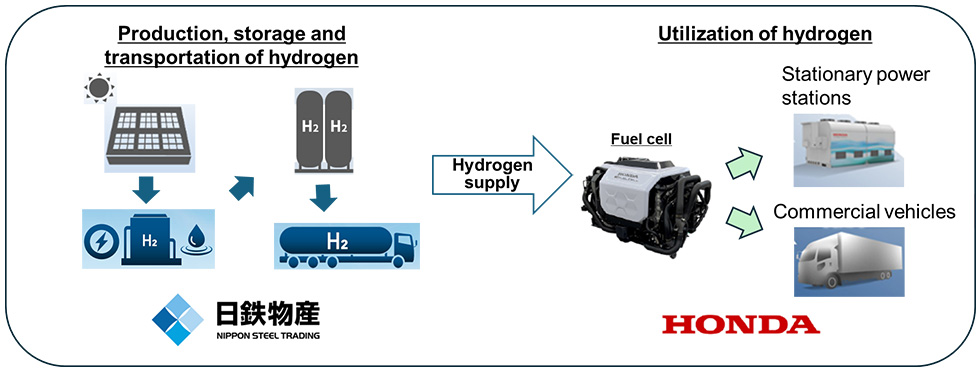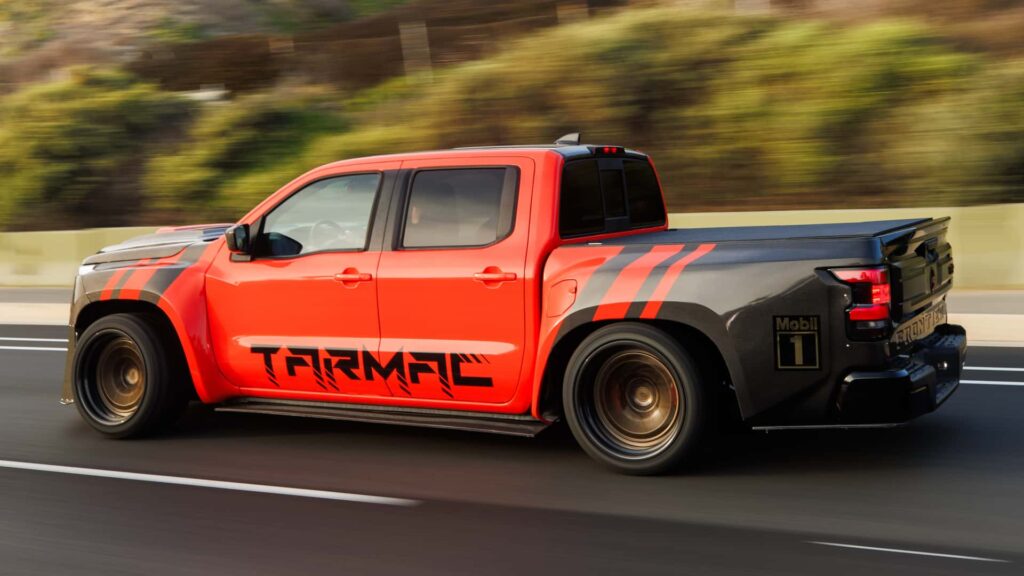Honda Motor Co., Ltd. (Honda) today announced plans to work with Nippon Steel Trading Corporation (Nippon Steel Trading) to conduct a research project toward the establishment of a hydrogen utilization model in Thailand with a “local production for local consumption” approach
Honda Motor Co., Ltd. (Honda) today announced plans to work with Nippon Steel Trading Corporation (Nippon Steel Trading) to conduct a research project toward the establishment of a hydrogen utilization model in Thailand with a “local production for local consumption” approach.
In this research project, Nippon Steel Trading, which operates Rojana Industrial Park in Thailand, and Honda, which possesses fuel cell technology, will collaborate to research the feasibility and viability of the project with a goal to achieve widespread use of green hydrogen produced through solar power generation within the industrial park. Companies located in the park, will utilize the hydrogen for various applications such as a stationary fuel cell (FC) power station and for FC-powered trucks. This joint project has qualified for a FY2023 supplementary subsidy provided by the Japanese Ministry of Economy, Trade and Industry (METI) for the Global South Future-Oriented Co-creation Project.
The Thai government is preparing to implement specific energy policies, including the utilization of hydrogen, to achieve carbon neutrality by 2050. By combining the knowledge of Nippon Steel Trading pertaining to industrial park business and renewable energy business development together with Honda FC technology, the two companies will strive to contribute to the creation of an environmentally-responsible future society by forming a hydrogen ecosystem that encompasses the entire process from hydrogen production to utilization.
Outline of the joint research project
Explore the possibility of Nippon Steel Trading to produce hydrogen through solar power generation, store and transport the produced hydrogen within the Rojana Industrial Park.
Explore the possibility of Honda utilizing the hydrogen for stationary FC power stations and FC-powered commercial vehicles and spread the usage among companies located in the Rojana Industrial Park.
Research and verify the following items:
- Verification of technical elements, research on related policies and regulations
- Verification of business feasibility, exploring financing options, discussion of a business implementation framework and business models
- Market research, discussion of plans for widespread use of hydrogen
- Verification of greenhouse gas emission reductions to be achieved through this project
About Rojana Industrial Park Public Co., Ltd.
Rojana Industrial Park Public Co., Ltd. was established in 1988 in Thailand as an industrial park equipped with world-class infrastructure. As of June 2024, more than 400 companies, including approximately 150 Japanese companies* in a wide range of business fields, are located in the Rojana Industrial Park. There are a total of eight parks in Thailand, and Nippon Steel Trading holds approximately a 21% stake. In addition to operating industrial parks, the company develops infrastructure for industrial parks, such as electricity and water supply infrastructure, jointly with partner companies.
* Including Honda Automobile (Thailand) Co., Ltd.
Honda hydrogen business
Honda was one of the first companies to focus on the potential of hydrogen toward the realization of a carbon neutral society and has been conducting research and development of hydrogen technologies and FCEVs for more than 30 years. Working toward the realization of a carbon neutral society, Honda will not only continue electrifying its products but also take a proactive approach to increase the utilization of hydrogen as an energy carrier and strive to expand its hydrogen business.
In addition to further advancing its fuel cell system as the core of its hydrogen business, Honda will further advance, Honda has identified four core domains for the utilization of its fuel cell system: fuel cell vehicles (FCEV), commercial vehicles, stationary power stations and construction machinery, and will actively engage in collaboration with other companies.
While continuing to strengthen collaboration and coordination with various companies in the hydrogen value chain, Honda will continue taking on new challenges in earnest to expand the utilization of hydrogen.
SOURCE: Honda


